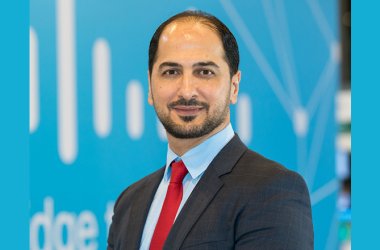
Across the Middle East and North Africa (MENA), youth are a major force for innovation. Among them, young women in tech hold enormous, underused potential. Despite making up nearly half the population, women still face barriers to entering and thriving in STEM. Empowering them with skills in AI, 5G, and other emerging technologies is no longer optional—it’s essential.
As digital transformation accelerates, AI is revolutionising industries like healthcare and finance, while 5G powers smart cities and immersive learning. These changes create new paths for women—as engineers, data scientists, AI developers, and tech entrepreneurs. But for women to access these opportunities, education, mentorship, and inclusion must be prioritised.
In MENA, 26% of the population is aged between 10–24 years. Yet women face disproportionate challenges in gaining digital skills due to access issues and social expectations. Globally, women occupy only 26% of AI roles, and even fewer in cloud (15%) and data analytics (12%). With 45% of businesses in emerging markets citing a lack of AI talent, it’s clear we must not only build skills—but ensure equal access to them.
At Nokia, we believe that partnerships are key to driving lasting change. In our collective efforts to advance these opportunities, we’re seeing incredible strides in empowering young women. In the Middle East region, we support several initiatives that combine technical training, mentorship, and career exposure.
In Jordan, we joined forces with Princess Sumaya University for Technology and UN Women to launch the Future Engineering Empowerment (FEE) program. It provides training in GPT, data literacy, and evolving tech—along with mentorship and visible female role models. In Qatar, our MoU with Qatar University focuses on engineering education through lectures, training, and internships—helping young women transition from classroom to career.
In Pakistan, our work with UN Women empowers young women through digital skills training focused on AI, 5G, and emerging tech. The program improves access to education and connects participants to real industry exposure, helping them thrive in Pakistan’s growing digital economy.
At NYUAD Slush’d in Abu Dhabi, we saw women leading AI innovation. The event followed the AI for Good Hackathon—one of the largest student hackathons in the region—where students tackled challenges in education, healthcare, and cybersecurity. This event continues the tradition of fostering entrepreneurship and deep tech innovation, and Nokia’s role as a Platinum Sponsor allowed us to contribute directly to judging, mentorship, and delivering keynotes to the students.
Encouragingly, MENA leads globally in one area: women’s participation in STEM education, with rates between 34% and 57%, higher than many Western countries. However, this educational representation doesn’t always translate into tech careers. That’s why internships, tech bootcamps, and applied learning are essential to connect skills with real-world careers.
Supporting educators is equally important. By providing teachers with ongoing training in emerging tech, we ensure they are better positioned to guide female students through new and evolving landscapes.
Policy plays a vital role. Strategic government investment in 5G infrastructure, AI readiness, and digital literacy programs can set the stage for inclusive economic development. In rural and underserved areas, initiatives must specifically target women to close the gender digital divide. Community networks like Women of MENA In Technology, with over 100,000 members (90% of whom are technical professionals), demonstrate the hunger and readiness among women to step into leadership roles in tech.
MENA’s women are poised to shape the region’s digital future. With the right partnerships, policies, and tools, we can ensure that future is inclusive, connected, and led by women. At Nokia, we remain committed to making that future a reality.
This opinion piece is authored by Mohamed Samir, VP, Mobile Networks, Middle East at Nokia.
***





